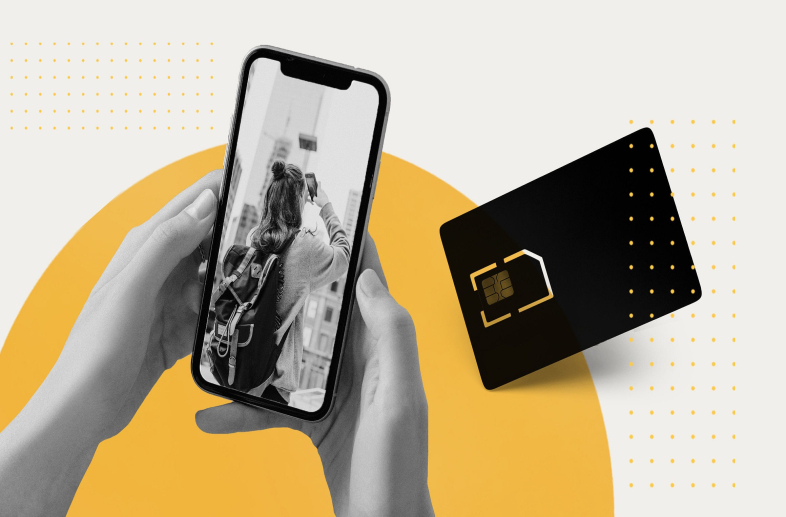When planning for international travel, one often overlooked but crucial element is staying connected. Choosing the right SIM card can save you from exorbitant roaming charges, ensure seamless communication, and keep you online for navigation, social media, and work purposes. This guide will help you understand the different types of SIM cards available for international travel and how to choose the best one for your needs.
Understanding SIM Cards
What is a SIM Card?
A SIM card, or Subscriber Identity Module, is a small chip inserted into your mobile device that stores your phone number and allows you to connect to a mobile network. It essentially acts as your gateway to accessing voice, text, and data services.
Types of SIM Cards
There are several types of SIM cards you can use when traveling internationally:
- Local SIM Cards
- International SIM Cards
- eSIMs
Local SIM Cards
Pros of Local SIM Cards
- Cost-Effective: Typically cheaper than international roaming charges.
- High Data Allowances: Local carriers often provide generous data packages.
- Local Number: This makes it easier to contact local services and people.
Cons of Local SIM Cards
- Inconvenience: You need to purchase a new SIM card in each country you visit.
- Language Barriers: Buying and setting up a SIM card can be challenging in non-English-speaking countries.
- Phone Compatibility: Not all phones are compatible with every carrier’s network.
Where to Buy Local SIM Cards
You can purchase local SIM cards at airports, convenience stores, and carrier stores in your destination country. It’s often best to buy them directly from a carrier’s store to ensure you get the best plan and support.
International SIM Cards
Pros of International SIM Cards
- Convenience: Use the same SIM card in multiple countries.
- Ease of Purchase: Can be bought online and delivered before your trip.
- Single Number: Keep the same phone number throughout your travels.
Cons of International SIM Cards
- Cost: Generally more expensive than local SIM cards.
- Limited Data Packages: May have lower data allowances compared to local options.
- Coverage: Network quality can vary between countries.
Popular International SIM Card Providers
- OneSimCard
- TravelSim
- WorldSIM
These providers offer various plans tailored for international travelers, allowing you to stay connected across multiple destinations. Along with this, it is also important to introduce a technology that is a means how to get free internet on Android. This is a method that will come in handy in this rapidly growing technology. And if you are a traveler then it will be helpful for you.
eSIMs
What is an eSIM?
An eSIM (embedded SIM) is a digital SIM that is built into your device. It allows you to activate a cellular plan without having to insert a physical SIM card. eSIMs are becoming increasingly popular and are supported by many modern smartphones.
Pros of eSIMs
- Flexibility: Easily switch between different plans and carriers without changing physical SIM cards.
- Convenience: Activate new plans remotely, often via an app or QR code.
- Dual SIM Capability: Use an eSIM alongside a physical SIM card.
Cons of eSIMs
- Device Compatibility: Not all devices support eSIMs.
- Availability: eSIM plans may not be available in all countries.
How to Set Up an eSIM
- Check Compatibility: Ensure your device supports eSIM.
- Choose a Plan: Purchase an eSIM plan from a carrier or eSIM provider.
- Activate: Follow the provider’s instructions to activate the eSIM, often by scanning a QR code or using an app.
Factors to Consider When Choosing a SIM Card
Destination
Your choice of SIM card may vary depending on your destination. Research the local carriers and the availability of international or eSIM options in the countries you plan to visit.
Duration of Stay
For short trips, an international SIM or eSIM might be more convenient. For longer stays, a local SIM card could be more cost-effective.
Data and Usage Requirements
Consider your data needs. If you plan to use a lot of data for navigation, streaming, or work, ensure you choose a plan with sufficient data allowance.
Phone Compatibility
Make sure your phone is unlocked and compatible with the SIM card you choose. Some countries and carriers use different network frequencies that may not be supported by your device.
How to Use Your SIM Card Effectively
Managing Data Usage
- Wi-Fi: Use Wi-Fi whenever possible to save on data.
- Data Management Apps: Use apps to monitor and control your data usage.
- Offline Maps: Download maps for offline use to reduce data consumption.
Keeping Your Number Secure
- Backup Contacts: Backup your contacts before changing SIM cards.
- Dual SIM Phones: If your phone supports it, use dual SIMs to keep your home number active for important calls and messages.
FAQs
What is the difference between a local SIM card and an international SIM card?
A local SIM card is purchased and used within a specific country, offering local rates and plans. An international SIM card works across multiple countries, providing convenience but often at a higher cost.
Can I use my home SIM card while traveling internationally?
Yes, but it can be expensive due to roaming charges. It’s often cheaper to use a local SIM, international SIM, or eSIM.
How do I know if my phone is unlocked?
You can check with your carrier or try inserting a SIM card from a different carrier. If the phone recognizes the new SIM, it is likely unlocked.
Are there any security risks with using public Wi-Fi?
Yes, public Wi-Fi networks can be insecure. Use a VPN to protect your data when using public Wi-Fi.
Can I keep my home number while using a different SIM card?
Yes, if your phone supports dual SIMs or if you use services like Google Voice, which allow you to forward calls and messages to your new number.
Choosing the right SIM card for international travel is essential to stay connected and avoid unnecessary costs. Consider your destination, duration, data needs, and phone compatibility to make the best choice for your travel needs.





